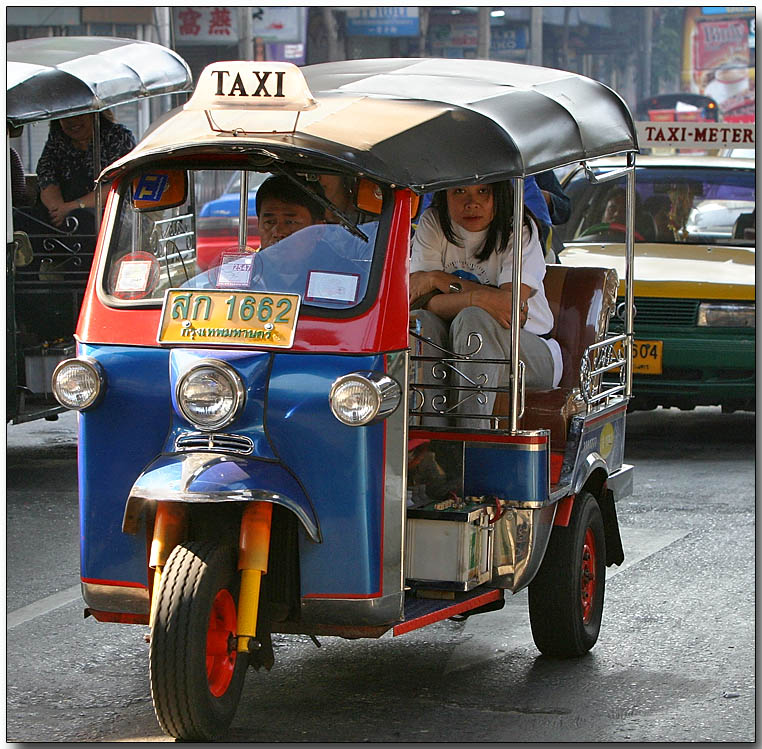It sounds like a bird: tuk-tuk. Like one of those exotic birds that can be found in the Amazon rainforest. But believe it or not, it’s actually a vehicle!
Tuk-tuks are a common way to get around in many Asian cities, but they contribute to urban pollution and high fuel costs. They may not be the most environmentally friendly vehicles, but they are a good start to creating a form of transportation that is quick and convenient. The Tokyo-based startup company, Terra Motors, wants to put more non-polluting vehicles on the streets with a new electric tuk-tuk unveiled this week for the Philippines.
The blue and white “e-tricycle” is powered by a lithium-ion battery and can carry six people including the driver. It measures just under 11 feet long and is steered with handlebars, like a bicycle, or the infamous Segway. It can travel some 31 miles per 2-hour charge, according to the firm, which is hoping to become the world’s top electric tuk-tuk maker.
“There is no single company in Asia that mass-produces electric bikes or tricycles,” President Toru Tokushige was quoted as saying by AFP. “I think it could have a big impact if a Japanese company is the pioneer in the market with products of such a futuristic design.”
The new electric tuk-tuks will go on sale in fall 2013 for about $6,300 apiece. Terra Motors is also in the running for a Philippine government plan, funded by a $300 million Asian Development Bank loan, to replace 100,000 gas-powered tricycle taxis with these new “e-trikes” by 2016.
The average tuk-tuk driver in the Philippines earns less than $10 a day, but e-trikes will save him $5 a day in fuel costs, according to the bank. The tricycles will be introduced to Manila and other cities under a lease-to-own system.
“Replacing 100,000 gasoline-powered trikes will enable the Philippine government to save more than $100 million a year in avoided fuel imports, while decreasing annual CO2 emissions by about 260,000 tons,” the bank said in a recent press release.



